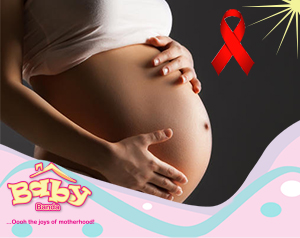When to start taking anti-HIV medications depends on your health, how much HIV has affected your body, and how far along you are in your pregnancy. In general, people infected with HIV who are not pregnant begin taking anti-HIV medications when their CD4 counts fall below 500 cells/mm3 or if they develop certain other infections. CD4 cells (also called T cells or CD4+ T cells) are white blood cells that fight infection. HIV destroys CD4 cells, making it harder for the body to fight infections. A CD4 count is the number of CD4 cells in a sample of blood. A CD4 count measures how well your immune system is working.
Women who need anti-HIV medications only to prevent mother-to-child transmission of HIV can consider waiting until after the first trimester of pregnancy to take anti-HIV medications. However, starting medications earlier may be more effective at reducing the risk of mother-to-child transmission of HIV. All pregnant women infected with HIV should be taking anti-HIV medications by the second trimester of pregnancy. Women diagnosed with HIV later in pregnancy should start taking anti-HIV medications as soon as possible.
Choice of Anti-HIV medications during pregnancy
All pregnant women infected with HIV should take a regimen (combination) of at least three anti-HIV medications. However, the specific medications in your regimen will depend on your individual needs. To select a regimen, your health care provider will review your medical history and order blood tests to assess your health and the stage of your HIV infection. Your health care provider will also consider:
• why you need anti-HIV medications—for your own health or only to prevent transmitting HIV to your baby;
• changes in how your body may absorb medications during pregnancy; and
• the potential of anti-HIV medications to harm your baby or cause birth defects.
If you are currently taking anti-HIV medication and discover that you are pregnant, Continue taking your anti-HIV medications until you talk to your health care provider. Stopping treatment could harm both you and your baby
Anti-HIV medications safety during my pregnancy
Women infected with HIV can safely use many anti-HIV medications during pregnancy to protect their health and to prevent transmitting HIV to their babies. However, some anti-HIV medications can cause problems when used during pregnancy. Knowing more about the safety of anti-HIV medications and pregnancy will help you and your health care provider decide what medications are right for you. It’s not known if babies will have any long-term effects from the anti-HIV medications their mothers use during pregnancy. However, the risk of mother-to-child transmission of HIV is known. The illness that results when HIV infection is passed from a mother to her child is very real and anti-HIV medications can greatly reduce the risk of passing HIV infection from a mother to her child during pregnancy.













